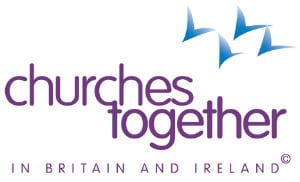Working Together
The churches in Halesowen have enjoyed a close relationship for many years, working together on many community-based projects. Hasbury Community Church is fully committed to maintaining this close relationship with the wider church family in the town. We are an active member of Churches Together in Halesowen and are involved in numerous projects that the group undertakes. You can follow this link to the ‘Churches Together in Halesowen’ website where you’ll find information about all the churches in the Halesowen.
We work particularly closely with our neighboring churches in Hasbury: – Hasbury Methodist Church and St Margaret of Antioch.

Christian Unity…Is it Really Possible?
‘One year at the Skegness Beach Mission we sang a song that contained the line “We can love others like sisters and brothers.” When we asked how many children had sisters or brothers, about forty put up their hands. Almost all claimed that they loved their brothers and sisters, but when asked if they ever quarrelled or fought with their sisters of brothers, they all put up their hands.
Jesus commanded His followers to love one another. He prayed that they might be one and that we should be brought into complete unity. The reason we are to love one another is that “By this shall all men know that you are my disciples”. We are to be one “so that the world may believe”. Lack of unity among Christians is one of the greatest hindrances to effective evangelism.
Jesus chose ordinary men to be His Apostles. His church still consists of men and women who are weak and selfish. Jesus does not call special people to follow Him but ordinary folk who, by His grace, will one day become very special. While this process is taking place ,however unity is difficult.
Difficulties in the early church
Even as Jesus was instituting the first communion, intended to be a great expression of oneness, there were problems. Luke records that a dispute arose among them as to “which of them should be greatest”. Within weeks of Pentecost, Greek speaking Christians complained that they were being neglected in favour of those who spoke Hebrew. When Peter preached in the home of a Roman soldier he was criticized. And some in the early church tried to insist that unless gentile believers follow the Jewish law they ‘could not be saved’. Peter and Paul had a very public row about fellowship. Barnabas and Paul split up after a dispute, while in Corinth the natural tendency to follow human leaders caused deep division. However, the disciples did manage to solve their differences without tearing themselves apart.
Not much different today
Today we have hundreds of denominations and many of them centuries old. The situation does not seem to improve. Almost all of the problems of the first century are with us today: language and cultural differences, the attitude that unless you believe and do what I do, you are not a true Christian. There is criticism of those who try to move forward into new areas of worship and evangelism. Conversely, there’s a despising of those who find comfort in the old ways.
The greatest miracle is that in spite of our divisions, weaknesses and failures, the Church of Jesus Christ has survived over 2000 years. In this twenty first century the church is still the most powerful force for good in the world. The reason is that at the heart of all that we believe is not a dogma, a creed or a doctrine, but the person of the living, risen Lord Jesus Christ. He is the hub, the different churches are the spokes. Like a wheel the closer to the hub the spokes are the closer they are to each other, the further away from the hub the greater the distance between them.
What does unity look like?
Real unity is not a matter of church leaders holding meetings and issuing joint statements. If unity is ever to be anything but a dream, it must come from the pew not the pulpit. As the Holy Spirit draws Christians from all the churches closer to Jesus, we shall find ourselves worshiping, praying and working together. We shall recognise the Lord whom we know and love in our brothers and sisters.
All of us are different – God has made us that way. We will always worship in different ways, but should we allow these differences to divide us while the Christ within us is calling us to be one in Him? Every Christian is part of the body of Christ and we are one. The greatest need is for the world to see our unity.

